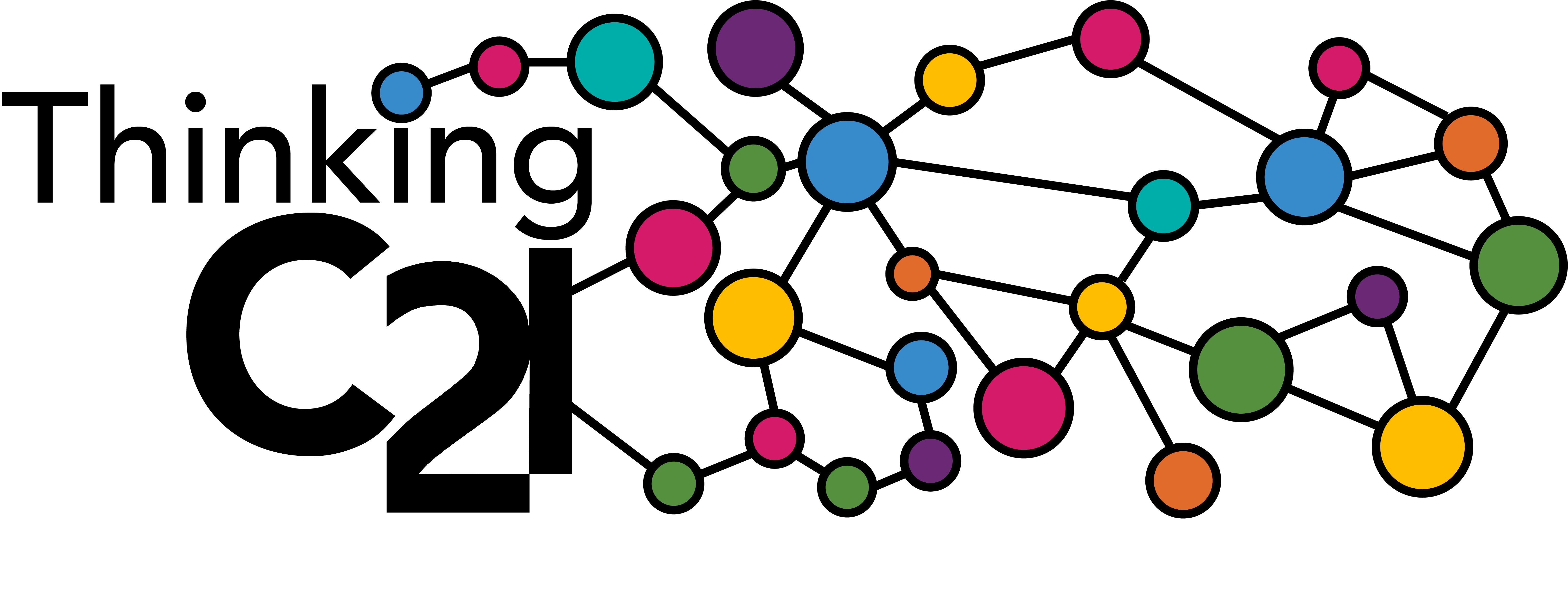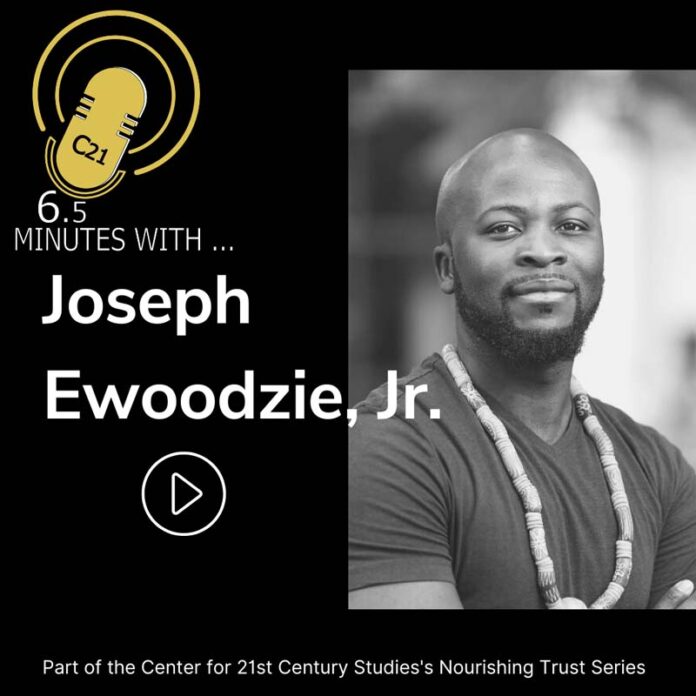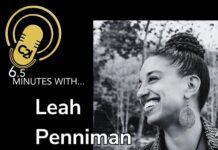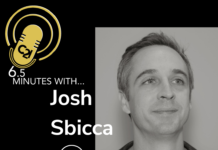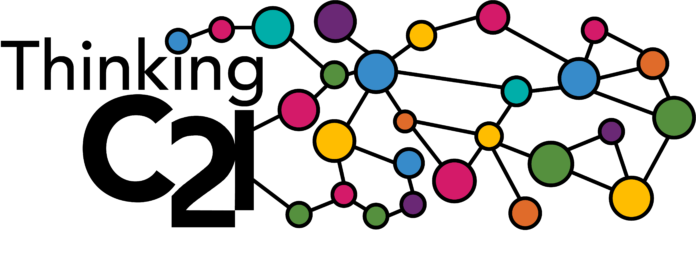In the first episode of the Nourishing Trust series, a symposium exploring food and land justice efforts, sociologist Joseph Ewoodzie, Jr. talks about his most recent book, Getting Something to Eat in Jackson.
Transcript of the podcast:
Joshua Rutherford:
You’re listening to 6.5 minutes with C21, an audio introduction to the topics experts and leaders who take part in conversations hosted by the Center for 21st Century Studies. I’m Joshua Rutherford, graduate fellow at the center. Earlier this year, Deputy Director Nicole Welk-Joerger spoke with Joseph Ewoodzie, Jr., Van professor of racial justice at Davidson and author of Getting Something to Eat in Jackson and Break Beats in the Bronx.
Nicole Welk-Joerger:
So the first question I have here is your previous work has explored the making of hip hop and your book focuses on food, so what do you see as the connecting thread between these two projects?
Joseph Ewoodzie, Jr.:
So I consider myself a cultural sociologist. I’m especially interested in the experiences of black folks, so inequalities that are generated by race and racism. I try to use culture to try to understand the mechanisms that allow for inequalities to persist. And I’m also interested in looking at how people who are experiencing the inequalities use culture to respond to inequalities that they’re facing.
So the first book is about the history of hip hop. As a sociologist, what I was trying to understand is, so these young black and brown teenagers who were living in the Bronx in the 1970s, in the pits of urban decay, as they’re experiencing these inequalities what did they think about themselves as they were navigating these inequalities? The answer to that question lies in looking at this music that they produce.
Similarly, I go to Jackson Mississippi and I’m interested in what does it mean to be black today in the contemporary south. And just as I used music to look at the lives of black and brown youth in the Bronx in the 1970s, I use food to look at the lives of black folks across class in Jackson Mississippi in 2012 and 2016, and today.
Nicole Welk-Joerger:
One thing we didn’t get to talk about during the lecture Q and A for today was if you’ve seen a lot of change in your work from 2012 to today.
Joseph Ewoodzie, Jr.:
I finished the book in the pits of the pandemic and the trauma that’s coming out of all of this is something that I don’t know how long it’s going to take for us to uproot. But I think when we’re all so stressed, we think the stresses are comparable and it just simply isn’t, things have gotten better for the people who we assume would get better for and not so much for others.
So, I think the answer to that question again, requires us to do this kind of work where combine on-the-ground observations with above-ground patterns and trends that we’re seeing in all kinds of different pockets of research that’s coming out. You know, let’s talk about food and housing instability, these are things that we don’t often put together, but people live all of those things together all the time.
Nicole Welk-Joerger:
From your work and research, what do you see as the relationship between food and justice in the United States today?
Joseph Ewoodzie, Jr.:
I think we should continue to explore food issues as being related to other forms of inequality, any food justice policies has to be anti-poverty policies. I worry that the people sometimes who might be generating these food justice policies are approaching their thinkings about food with a completely different framework than the folks who they hope these policies will be helpful for.
When I went to Jackson, my object released to figure out how does being hungry just fall in your day, like you’re going to buy your business, and then when do you feel hungry? I ate only when people around me ate, and so even in my stomach, I remember feeling most hungry with those in poverty and those who are the upper middle class, the richest, I was most full around people who are homeless.
So if we started and we realize that food availability is very different, there is a price to make sure that food is available to you three, four times a day. For the homeless folks to survive homelessness, you have to give up trying to get out of homelessness because all the providers provide services for homeless people, not people who are aspiring to get out of homelessness. For those in poverty, The stress of everyday life just makes it utterly impossible. Upper middle class, they’re trying to balance, you know, their class food ideologies with the fact that they live in neighborhoods where it’s not possible to get. Whole Foods is not down the street for you as it is for your white middle-class counterparts.
So I think when we’re thinking about food and justice, we have to think about the mechanisms that recreate these inequalities and make sure that our policies are really attached to those. Too often, I just see us throwing things on the wall and seeing what sticks, or you know, maybe what they really need is the farmer’s market down the street. Maybe that’s not what they need, maybe they need to grow their own food.
I just want to make sure that the policies that we are offering isn’t mismatched with the experiences of the people to whom we’re offering these policies. I think as ethnographers, that’s the best that we can give. You go and look inside of people’s lives, this is what we’re learning about their lives, is this policy that you’re offering matching up with what they’re doing?
And multinational companies do this all the time. McDonald’s knows that Zenani needs food. She needs to meet her entire family. So what we’re going to get them a family meal with a toy inside and you can just drive through the driveway and come pick it up. Another example, Hello Fresh, food delivery services. They know you and I are busy, they know, yes, we like fresh food. They know we don’t have time to go to the grocery store, but if you sign up we’ll package everything and send it to your house, that’s them planting their product directly inside of the rhythm of our lives. We have to do that with policy.
Nicole Welk-Joerger:
There’s another element to thinking about justice and these issues, especially these policies and thinking about how policymakers think versus how corporations think, and that’s how might we want to think about the relationship between trust and food more generally based on your work?
Joseph Ewoodzie, Jr.:
The word that I just sort of keep running into this idea of legitimacy, right? Do I trust this entity that’s supposed to be taking care of me? I don’t think we spend enough time building that legitimacy and that trust between policymakers or institutes and the people that we say we’re serving. And so as I think about training my students here to think about the policy world as a career option, not just something that you do on the side.
One of the beginnings of my curriculum now is studying how one creates this trust and how one builds this legitimacy between the people that you hope to serve. Because I think it turns out our wish for the world to be better is not enough because how we want the world to be better shouldn’t be, how we change the world, how we want the world to be better, should very much be in sync with how the people who are suffering in the world also want the world to be better. And sometimes those things clash and sometimes we don’t give the folks what they want. We give them what we think they should want.
And I think a lot of that is that trust and relationship food for me sometimes is the thing to blunt the politics of life. How far are we all willing to really go to ensure that the person next to us is able to participate in life, the way we think all people should participate in life?
Joshua Rutherford:
To further engage with this interview, other conversations, and the participatory research and reading activities for Nourishing Trust, please visit our website at uwm.edu/c21. If not there, we hope to catch you when you have another 6.5 minutes to spare.
